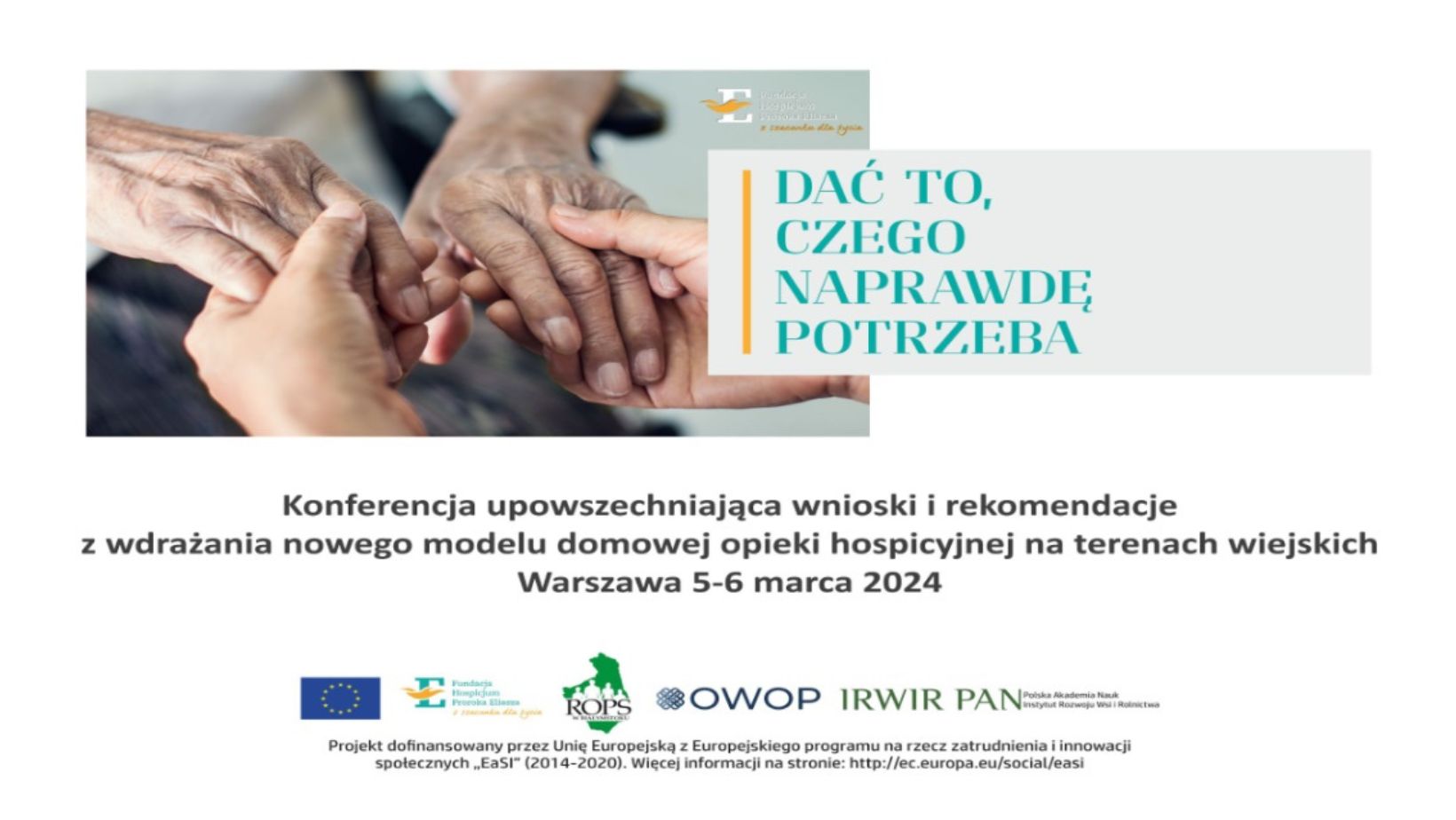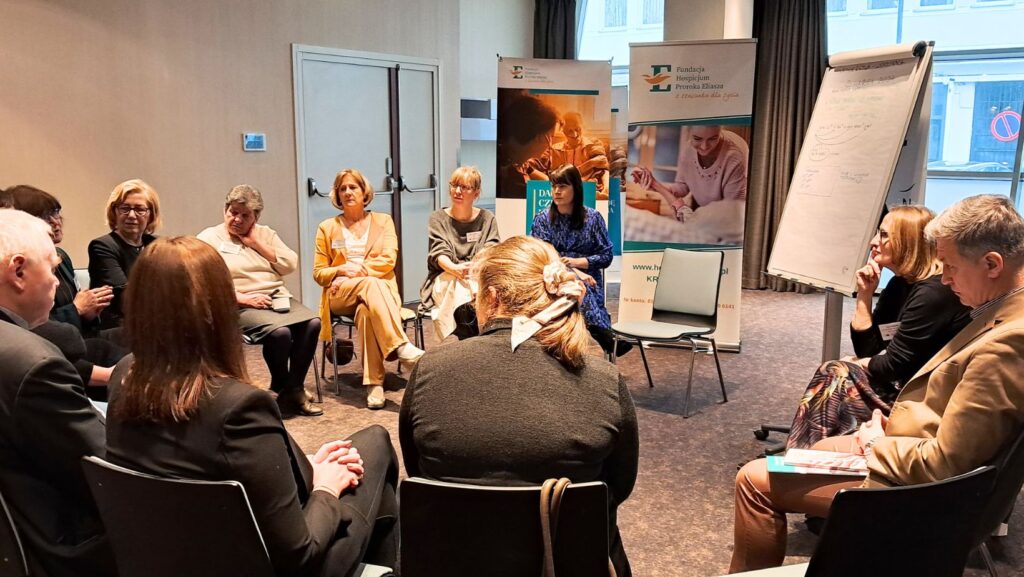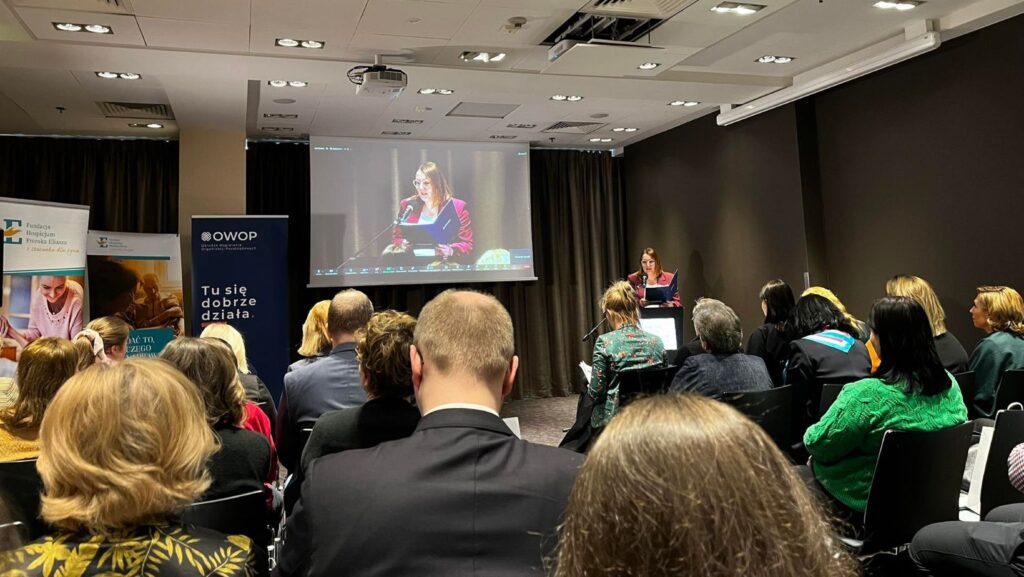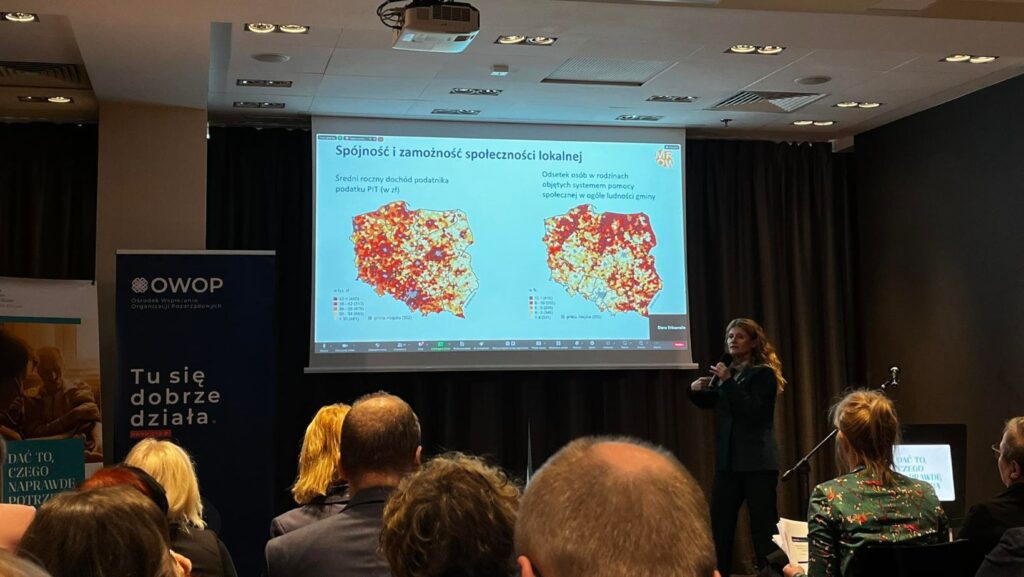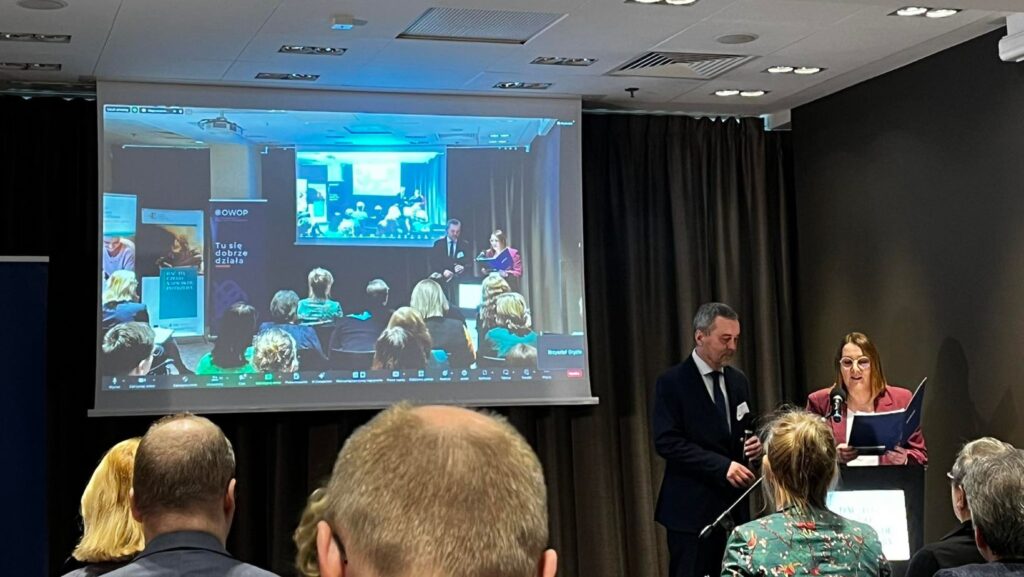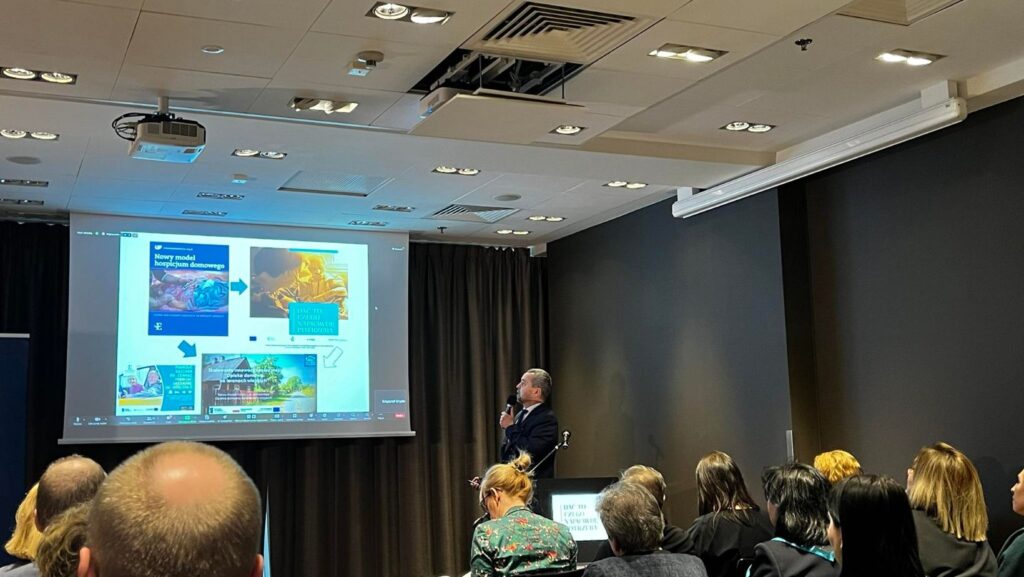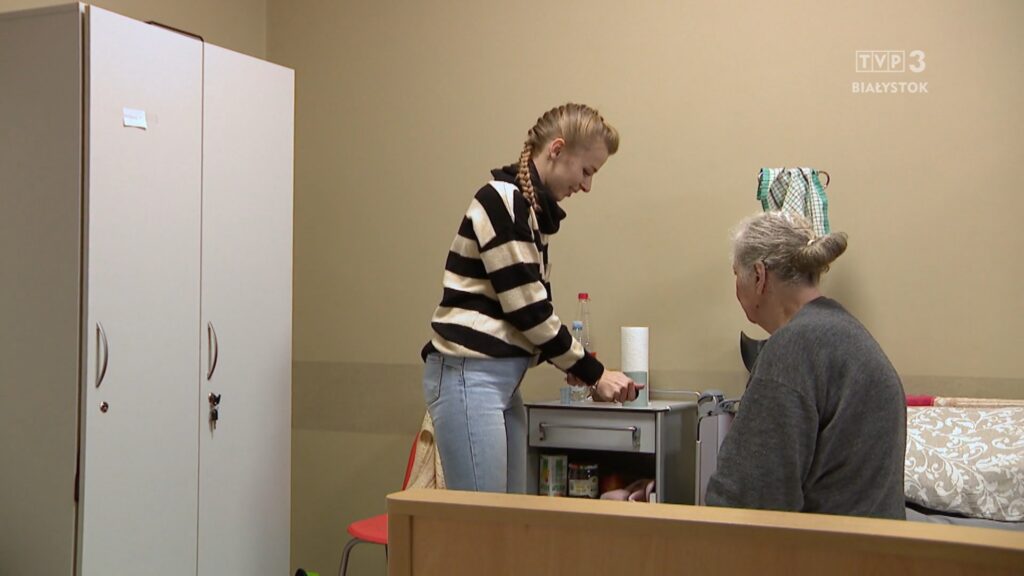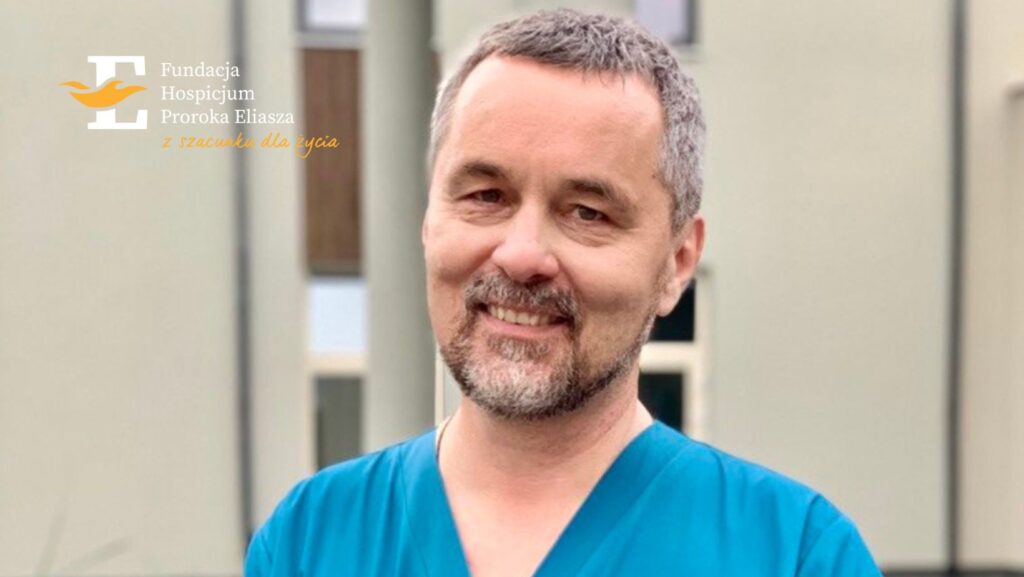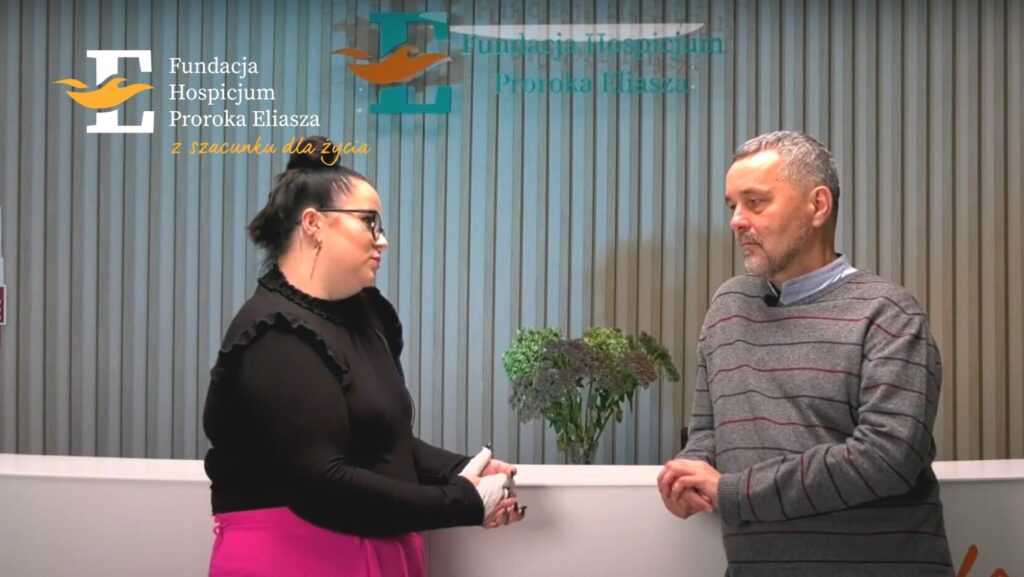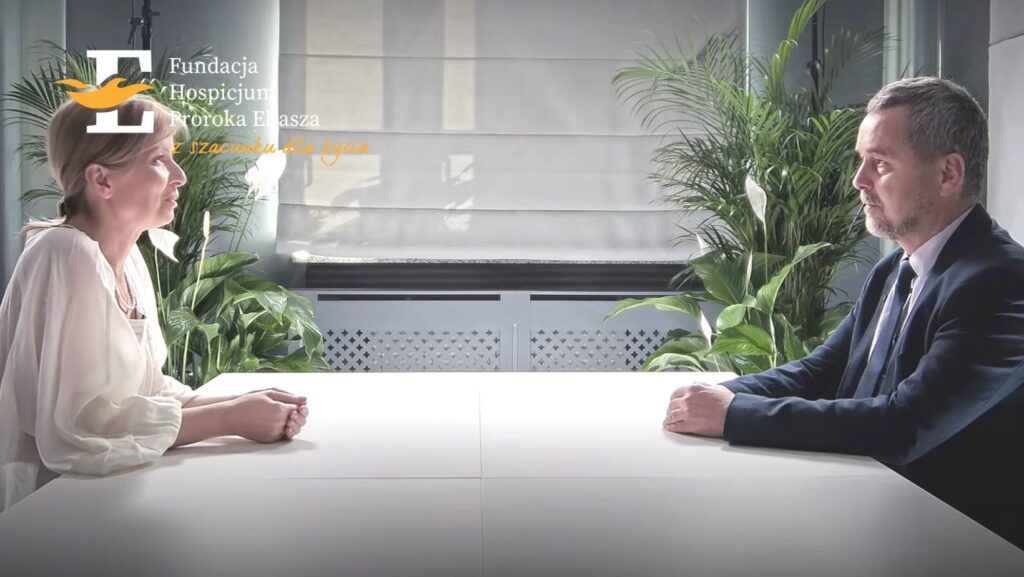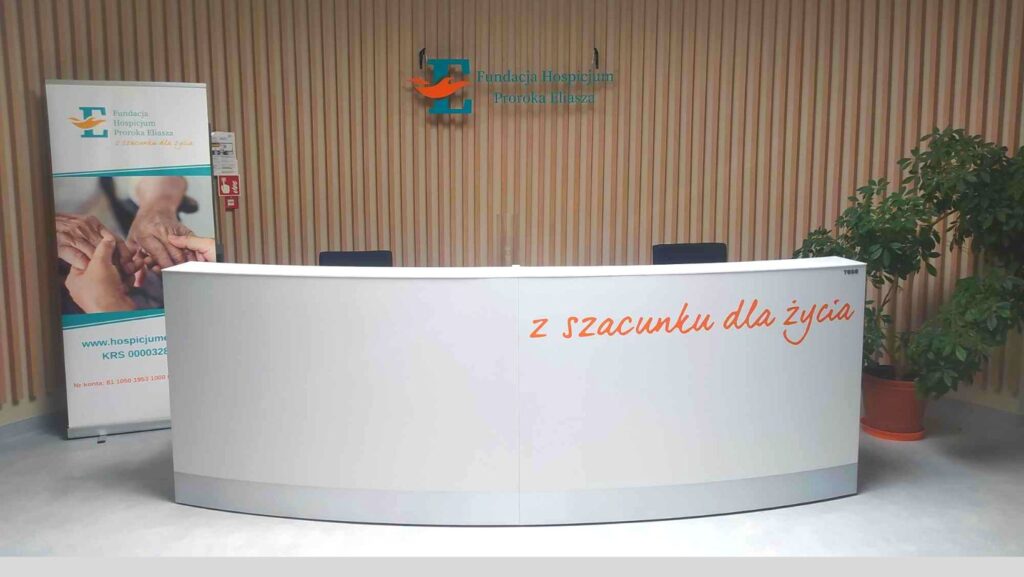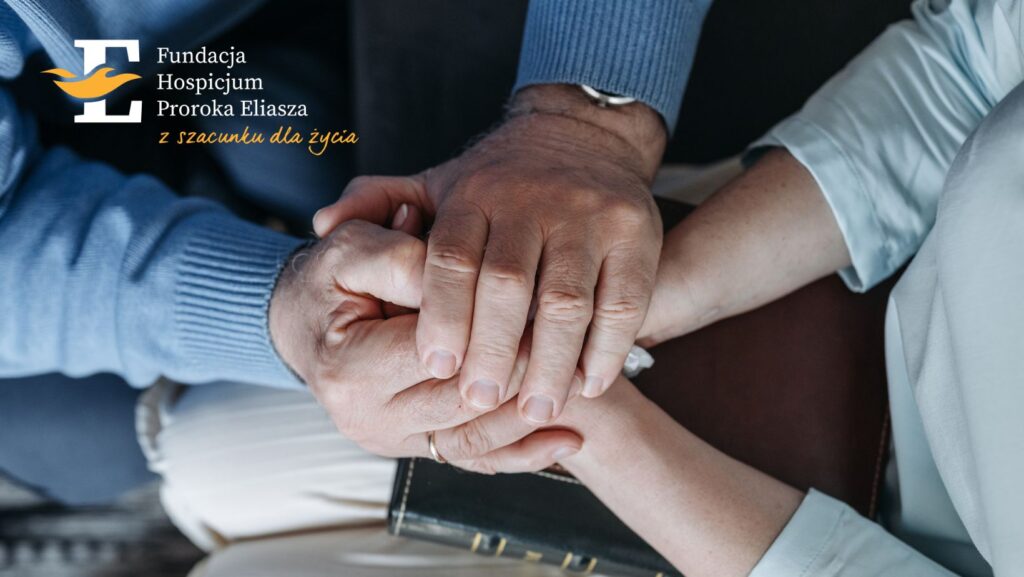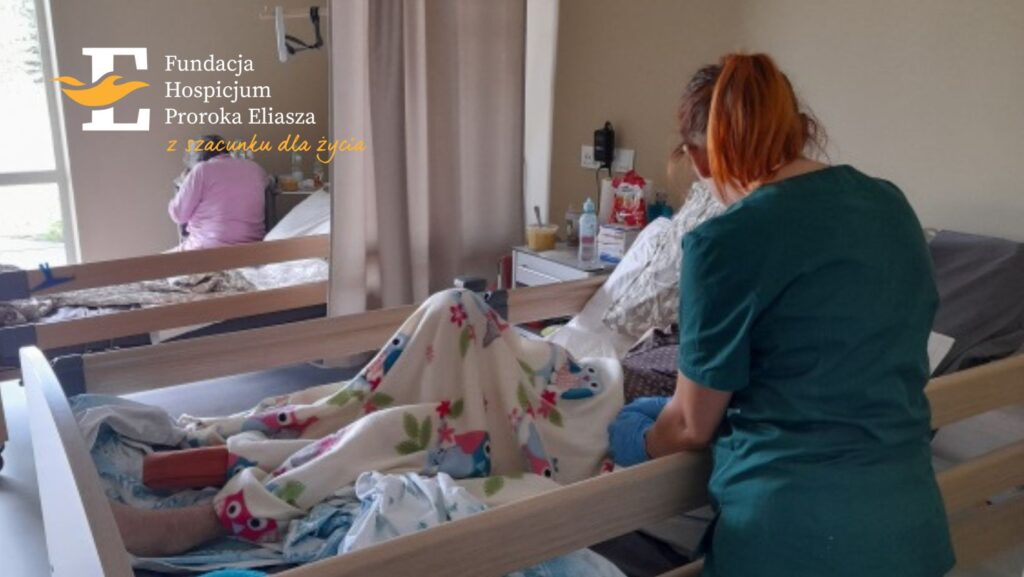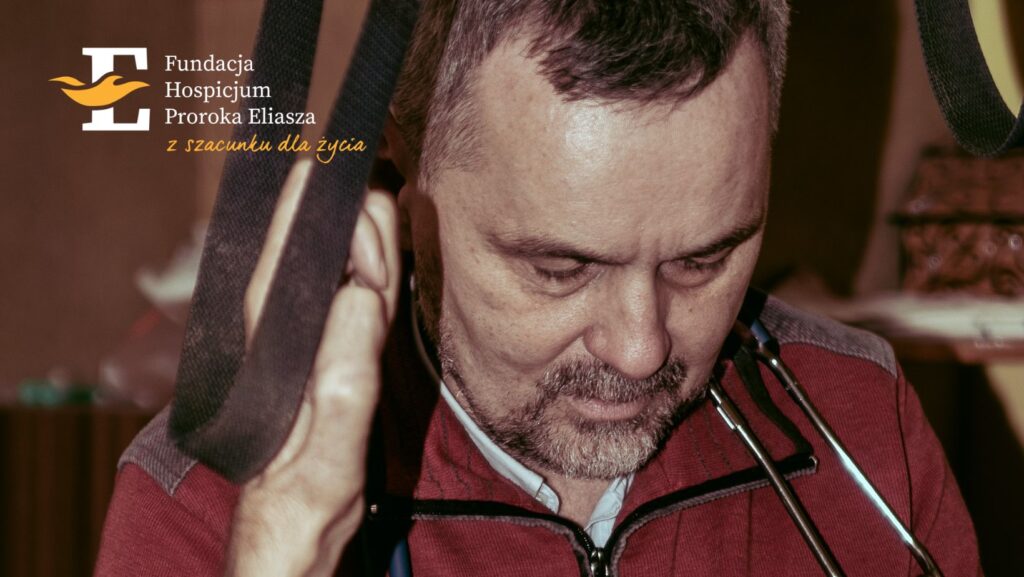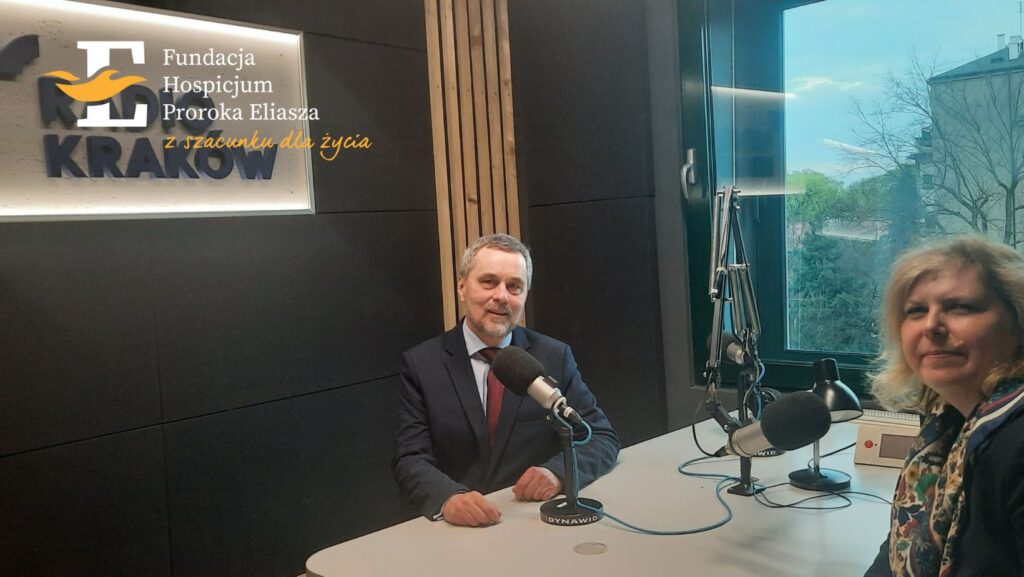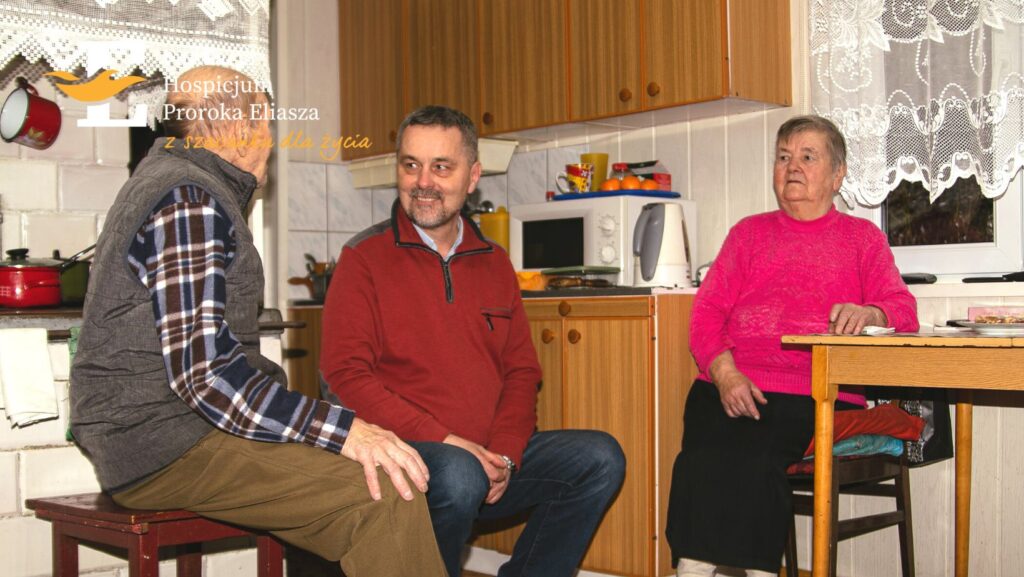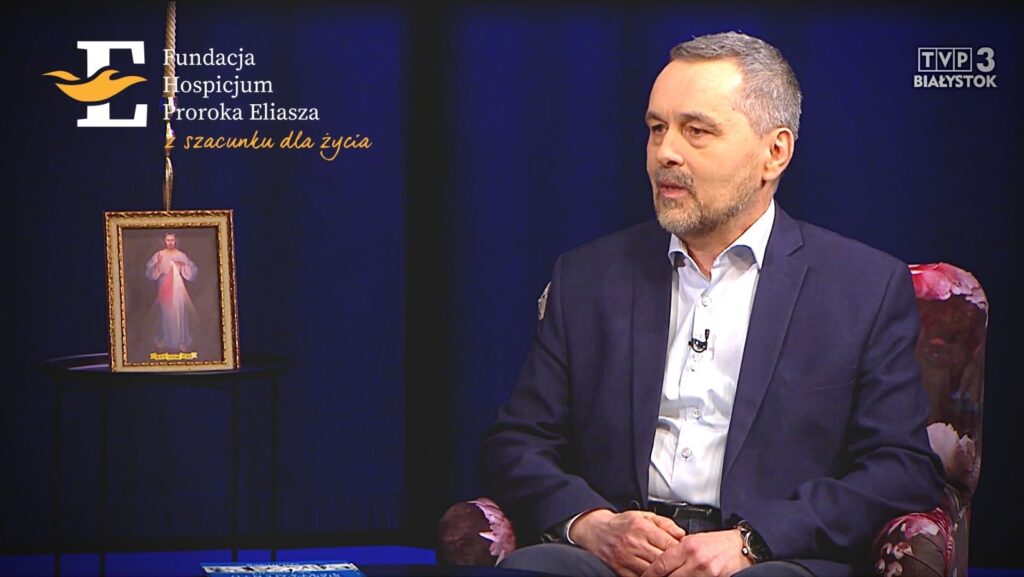“To give what is really needed” – is a unique project, the only one in Poland, which was among the seven finalists awarded by the European Commission under the European Employment and Social Innovation Program (“EaSI”) 2014-2020. Its goal was to test and introduce a new model of home care for dependent, chronically and terminally ill people in rural areas and scale it nationally and internationally.
The originator and Leader of the EU project is the Prophet Elijah Hospice Foundation in Makkah, and the Partners are: Podlaskie Regional Government, represented by the Regional Social Assistance Center (ROPS) in Bialystok, the NGO Support Center (OWOP) and the Institute of Rural and Agricultural Development of the Polish Academy of Sciences (IRWiR PAN).
Caring for patients in the terminal phase of their illness is a challenge for the health care system, social welfare, as well as those closest to them. The rapidly aging population requires an increase in the need for hospice care, and the number of people requiring this type of care continues to grow. This is clearly demonstrated by the IRWiR’s research, which has accompanied the implementation throughout its duration.
Due to the growing needs described above, Prophet Elijah Hospice in Makkah has introduced a model solution for home hospice care. What does it consist of? Is it effective? Is it innovative? Is it needed? Answers to these and other questions were heard at a conference disseminating the conclusions and recommendations of the project “To give what is really needed, which took place on March 5-6 in Warsaw. Participants included representatives of the European Commission, the Ministry of Health, the Ministry of Family and Social Policy, the Ministry of Funds and Regional Policy, the Ombudsma,s Office the National Health Fund and hospices.
An important issue is that the Polish countryside is in a crisis of old age, depopulation, and its inhabitants are experiencing many exclusions. Thus, the search for, implementation and support of all methods of improving home care for the elderly, terminally ill, and their home caregivers is becoming an increasingly urgent task.
The approach is considered innovative although, as the author reiterates, it is only, or as much as, common sense and is guided by the realization of a holistic approach to care. This model addresses existing challenges and ensures that residents receive care tailored to their needs, according to the motto: “To give what is really needed.”

